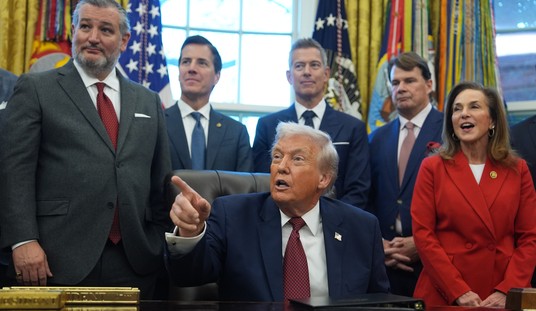While everyone is waiting breathlessly to see whether the Supreme Court will strike down Obama’s egregious power grab in the healthcare sector, a bipartisan group of congressmen and senators are working to grow government in several other sectors of the economy. We must not be complacent.
In our battle to shrink the size of the federal government, there have been a number of issues on the agenda over the past few months. Two of those issues are the extension of subsidized Stafford student loans and the Senate surface transportation leviathan. Now, thanks to a deal cut between Harry Reid and Mitch McConnell, they will converge as one package to be voted on before the end of the week. Both items are set to expire June 30, and will be extended without any serious reforms unless House Republicans act. And no, despite promises to the contrary, the Keystone pipeline is not part of the deal.
All too often, Congress focuses exclusively on the cost of a bill to the government instead of the cost to the free market. Ultimately, they fail to deal with either problem in a prudent manner. This is quite evident in the case of the student loan deal.
In 2007, the Pelosi-Congress reduced interest rates on government-subsidized Stafford loans from 6.8% to 3.4%. Like every stimulus measure during that era, it was supposed to be temporary. Now there is a bipartisan deal to ostensibly make it permanent (they say it’s only for 1 year, but we’ve seen that rodeo before). They only care about the $6 billion annual cost to the government, but fail to focus on the more fundamental problem – the fact that government subsidies will continue to fuel the education bubble, engendering a further need for larger subsidies. Hence, the circuitous cycle of government intervention and inflation will continue unabated.
Instead of debating how to pay for more subsidized loans, Republicans should articulate the case for phasing out this unlimited subsidization of higher education. Since the Department of Education was created, the cost of college tuition has increased over 439% adjusted for inflation! The rate of increase is almost exactly commensurate with the rate of growth of DOE subsidization.
Moreover, there are serious concerns about the source of the offsetting revenue that will be used to pay for the loans. One provision allows corporations to put less money into company pensions that are backed by the taxpayer-funded Pension Benefit Guaranty Corporation (PBGC). This would increase net profits for corporations, and by extension, generate $9.5 billion more in taxes to Uncle Sam. This measure could expose taxpayers to future bailouts of the PBGC when it becomes clear that the pension plans are underfunded. [read more on this at the Heritage Foundation].
What is even more cynical about this extension is that, despite the deceitful rhetoric to the contrary, the impending increase in loan rates would not affect any current borrower. It would only apply to those taking out new loans this year. Furthermore, it would only save borrowers $7 a month, even though the macroeconomic cost (taxpayers and free market) would be enormous. Conservatives cannot support continued government intervention in higher education to benefit Big Education cronies at the expense of the rest of us.
The next red flag is the 1500-page 2-year Senate Highway Bill (MAP 21, S. 1813) that will be combined with the student loan extension. Based on the details of the tentative agreement, the offsetting revenues from the pension provision will be used to fund the $14 billion deficit in the highway trust fund as well. As we’ve noted on numerous occasions, there is no reason why the federal government should be diverting 20% of the gas tax revenue to mass transit and other wasteful projects. And, of course, the 2-year deficit will be offset over 10 years. In fact, that’s just one reason why we should devolve transportation spending back to the states, especially since the completion of the interstate highway system.
Here are some other problems with the Senate highway bill that will possibly apply to the final conference deal. We must ensure that these provisions are not in the final product:
- General Fund Transfer: Just hours before the Senate bill was brought to a floor vote on March 14, Barbara Boxer slipped in a manager’s amendment that contained a provision (section 40313) authorizing a $5 billion general fund transfer to the highway trust fund.
- Nanny-State Enhancement Mandates: James Inhofe, the Republican architect of Boxer’s transportation bill, promised Republicans that the bill offered flexibility to the states for spending their infrastructure dollars, exempting them from the 10% “enhancement” mandates. Well, the manager’s amendment appears to have vitiated that agreement.
- Other Top-Down Mandates and Anti-Free-Market Policies: There are sundry provisions that impose eco-fascism, establish anti-growth “made in America” mandates, discourage private sector investments in infrastructure, and offer giveaways to Big Labor.
- Truck Mandates: The bill would require the installation of electronic on-board recorders (EOBRs) on every single commercial motor vehicles in the country, including short-haul trucks. This will be very costly to the trucking industry and will, in turn, raise the cost of transporting vital goods.
Now it appears that the Keystone Pipeline – the one aspect of the bill that Republican negotiators promised to keep – will not be included in the final conference report, H.R. 4348. They agreed to jettison the Keystone provision in favor of an option for states to opt out of the mandatory funding for bike lanes and beautification projects. They are also buying into the Obama/Keynesian notion that the highway bill is a jobs bill.
Bipartisan negotiators are boasting that their deal will kill two birds with one stone. Well, for conservatives, we indeed have an opportunity to kill two big-government birds with one vote. Vote no on the Senate highway bill and student loan extension! Transportation spending should go back to the states, while student loan bubble spending should go back to Mars.













Join the conversation as a VIP Member